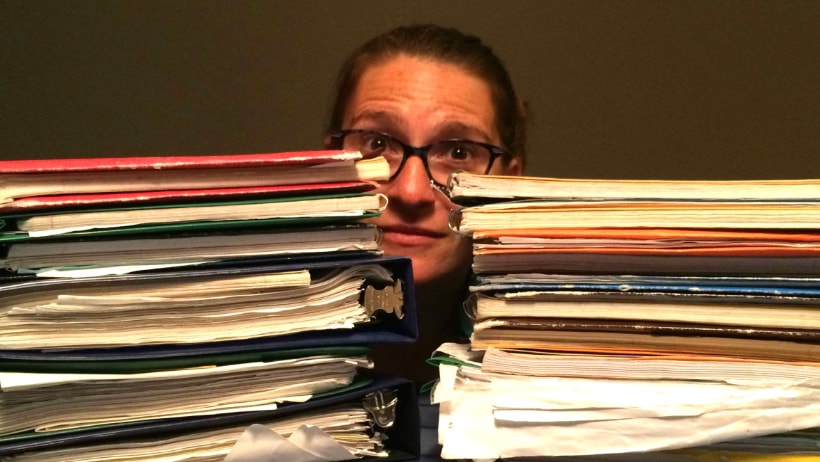Two friends are out walking their dogs, and one friend says to the other, “Yesterday I taught my dog to whistle.” The second friend turns and says, “That’s incredible! Can I hear it?” The first one says, “Of course not. I only taught it to him – he didn’t learn it.”

I’m not sure this concept is obvious until you actually stop to think about it. Teaching doesn’t automatically equal learning, in the same way that cooking dinner doesn’t automatically mean a certain two-year-old is going to eat it. I’m not talking about anyone in particular, of course. The point is that it’s the responsibility of the learner – or the eater – to digest the information.
In rabbinical school, my classmates always made fun of me because of the way I sat with my pen and paper and outlined every piece of reading material we were ever assigned. That was how I learned the information best, by the tactile nature of handwritten note-taking. I could never take notes on a computer; to this day, I need to write by hand in order to remember. These notes and outlines were the key to my success in school, and I still have them. If there’s ever a “rabbi edition” of the TV show “Hoarders,” you’ll get a first-hand look at my boxes of handmade flashcards.
There are multiple theories as to when and why absorption of data happens, but the way we interact with our world and the way we take in information differs from person to person and from subject to subject. You may have heard of the theory of multiple intelligences, developed by Howard Gardner, a psychologist who determined that there are eight modalities that are used in order to hold information. The theory suggests that for a lesson to stick, or material to be learned, we must take it in in a way that speaks to us individually.
The Torah is perhaps the first curriculum written for multiple intelligence learning. We read parshat Re’eh this week as the Torah races to the finish line of its lessons. In ourparshah we learn about the blessings and curses that will come with observance (or lack thereof) of the mitzvot we’re given. We receive some final warnings about following the laws against idolatry, laws for keeping kosher, and the importance of treating each other as equals. Finally, we receive some more information on our three pilgrimage festivals.
The parshah begins with Re’eh, “see the blessings and curses,” but just a verse later we read “if you do not hear the commandments…” The Torah understands that we absorb information differently – some by seeing, some by hearing, and some by touching. There are Israelites who might have heard God’s booming voice at Sinai, but because they couldn’t see it, didn’t believe it. There are those who might have seen the grand show from Sinai, but needed to actually hear God’s voice in order to take it all in.
I mentioned before that there are multiple learning theories. There’s also the theory that it’s the subject matter that is the bigger factor in successful learning. If you’re going to learn how to drive, how would you like to learn? By reading about driving, by engaging in a lively debate about driving, or by getting behind the wheel? Learning to drive needs a hands-on approach. Now let’s say you’re learning about the subject of legal ethics and pose the same question. Most of us go for the lively debate, right?
The Torah gives us the subject-based side of the coin too. We have commandments based on intellectual and spiritual concepts:
Hallow God’s name. (Lev. 22:32)
Don’t bear a grudge. (Lev. 19:18)
And we have commandments that are purely tactile or auditory:
Hear the sound of the shofar. (Num. 29:1)
Eat matzah on the first night of Pesach. (Ex. 12:18)
To live a Jewish life, we have to engage our intellects and our senses. What a concept!
As I reminded my classmates back in school, we all learn differently, and, guess what, we all graduated. This week as we read parshat Re’eh, we are reminded that Judaism is experienced uniquely by each of us and in each of the ways we are commanded to do so. Listen to the Shema, see the flame of the candles, taste the sweetness of the wine, celebrate Shabbat. Most importantly, make it your journey of learning.



